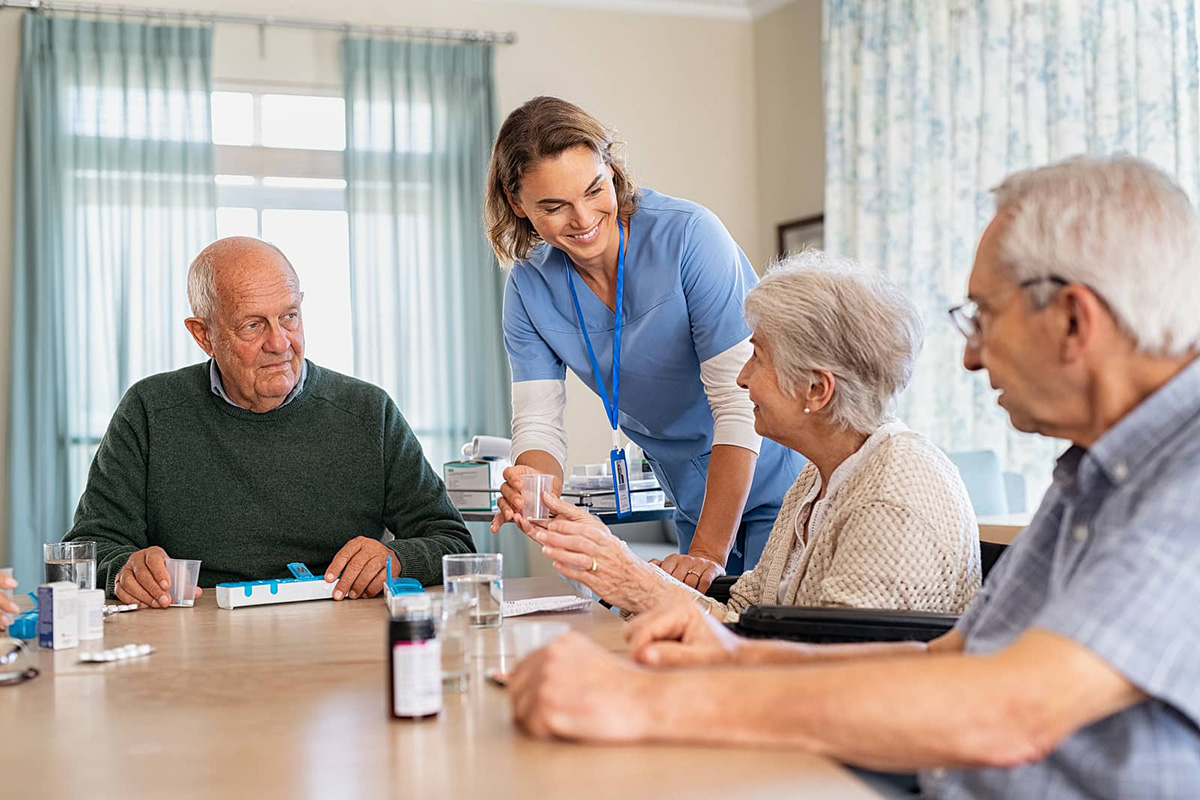

Finance
What Is Zero-Premium Health Insurance?
Published: October 30, 2023
Discover the benefits of zero-premium health insurance and how it can fit into your financial plans. Explore affordable options for comprehensive coverage.
(Many of the links in this article redirect to a specific reviewed product. Your purchase of these products through affiliate links helps to generate commission for LiveWell, at no extra cost. Learn more)
Table of Contents
- Introduction
- Understanding Zero-Premium Health Insurance
- Benefits of Zero-Premium Health Insurance
- Drawbacks of Zero-Premium Health Insurance
- Factors to Consider When Choosing Zero-Premium Health Insurance
- How Zero-Premium Health Insurance Works
- Is Zero-Premium Health Insurance the Right Choice for You?
- Conclusion
Introduction
Health insurance is an essential component of financial planning, as it provides coverage for medical expenses and helps protect individuals and families from incurring massive healthcare costs. However, the rising premiums for health insurance plans have become a significant concern for many individuals and families. In an effort to address this issue, a new type of health insurance called zero-premium health insurance has emerged.
Zero-premium health insurance refers to a type of health insurance plan where the premium cost is effectively reduced to zero. This means that individuals who enroll in these plans do not have to pay a monthly premium for their coverage. While it may sound too good to be true, zero-premium health insurance plans do exist, and they can offer certain benefits for those who qualify.
It’s important to note that zero-premium health insurance plans are not available to everyone. Eligibility for these plans is typically based on certain criteria, such as income level, household size, and location. These plans are often offered through government programs, such as Medicaid or the Children’s Health Insurance Program (CHIP), and are designed to provide affordable coverage for low-income individuals and families.
In this article, we will delve deeper into the concept of zero-premium health insurance, exploring its benefits, drawbacks, and factors to consider when choosing this type of coverage. We will also discuss how zero-premium health insurance works and help you determine if it is the right choice for you and your family.
Understanding Zero-Premium Health Insurance
Zero-premium health insurance is a type of health insurance plan where the monthly premium cost is reduced to zero, meaning individuals do not have to pay any premium for their coverage. This can be an attractive option for individuals and families who are looking to minimize their healthcare costs.
Zero-premium health insurance plans are typically available to individuals who meet certain income requirements. These plans are often provided through government programs, such as Medicaid or CHIP, aimed at assisting low-income individuals and families with affordable healthcare coverage. In some cases, employers may also offer zero-premium health insurance plans as part of their employee benefits package.
It’s important to understand that while the premium cost is eliminated in zero-premium health insurance plans, there may still be other out-of-pocket expenses associated with healthcare services. These can include copayments, deductibles, and coinsurance. It’s crucial to review and understand the terms and conditions of the plan to determine what additional costs you may be responsible for.
One of the key features of zero-premium health insurance plans is that they often provide comprehensive coverage. This means that individuals enrolled in these plans have access to a wide range of healthcare services, including preventive care, doctor visits, hospital stays, medications, and more. The exact services covered will vary depending on the specific plan and provider.
It’s important to note that zero-premium health insurance plans may have limitations compared to plans with higher premiums. Some plans may have a more restrictive network of healthcare providers, meaning individuals may be limited in their choice of doctors and hospitals. Additionally, the level of coverage for certain services, such as specialized treatments or experimental procedures, may be more limited.
Overall, understanding the basics of zero-premium health insurance is crucial before deciding if it is the right option for you. By being aware of the income requirements, potential out-of-pocket expenses, and limitations of these plans, you can make an informed decision about your healthcare coverage.
Benefits of Zero-Premium Health Insurance
Zero-premium health insurance plans offer several benefits for individuals and families who qualify for this type of coverage. Here are some of the key advantages:
- Affordability: The primary benefit of zero-premium health insurance is its affordability. By eliminating the monthly premium cost, individuals and families can significantly reduce their healthcare expenses. This can be particularly beneficial for low-income individuals who may struggle to afford traditional health insurance premiums.
- Access to Comprehensive Coverage: Zero-premium health insurance plans often provide comprehensive healthcare coverage. This means that beneficiaries have access to a wide range of services, including preventive care, doctor visits, hospitalization, prescription medications, and more. This comprehensive coverage ensures that individuals can receive the necessary healthcare they need without worrying about high out-of-pocket costs.
- Protection against Catastrophic Expenses: Even though zero-premium health insurance plans may have certain out-of-pocket expenses, they can still protect individuals and families from catastrophic medical costs. These plans typically have a maximum out-of-pocket limit, which means that once a certain amount of out-of-pocket expenses is reached, the insurance will cover the remaining costs. This protects beneficiaries from substantial financial burdens in the event of a serious illness or injury.
- Preventive Services: Zero-premium health insurance plans often prioritize preventive care services. This means that individuals can receive screenings, vaccinations, and other preventive measures to detect and prevent potential health issues. By focusing on preventive care, these plans can help individuals maintain better overall health and catch any potential health problems early on, reducing the need for more costly treatments down the line.
- Potential Additional Benefits: Some zero-premium health insurance plans may offer additional benefits beyond basic healthcare coverage. These can include dental and vision care, mental health services, transportation assistance, and more. These additional benefits can further enhance the value of the coverage and provide individuals with greater access to necessary healthcare services.
It’s important to note that the availability of these benefits may vary depending on the specific zero-premium health insurance plan and the provider. It is crucial to carefully review the details of the plan to understand the specific benefits and ensure they meet your individual healthcare needs.
By offering affordability, comprehensive coverage, protection against catastrophic expenses, and potential additional benefits, zero-premium health insurance plans can provide valuable healthcare coverage for individuals and families who might otherwise struggle to afford it.
Drawbacks of Zero-Premium Health Insurance
While zero-premium health insurance plans offer affordability and comprehensive coverage, there are also some drawbacks that individuals and families should be aware of before opting for this type of coverage. Here are some of the key drawbacks:
- Restricted Network of Providers: Zero-premium health insurance plans often have a more limited network of healthcare providers compared to plans with higher premiums. This means that individuals may have fewer options when it comes to choosing doctors, hospitals, and specialists. It’s important to carefully review the provider network to ensure that your preferred healthcare providers are included in the plan.
- Higher Out-of-Pocket Costs: While the premium cost is reduced to zero, zero-premium health insurance plans may still have other out-of-pocket costs, such as copayments, deductibles, and coinsurance. These costs can add up, particularly if you require frequent medical services or have a chronic condition. It’s essential to carefully review the plan details to understand the full extent of the potential out-of-pocket expenses.
- Limited Coverage for Specialized Services: Zero-premium health insurance plans may provide limited coverage for specialized services, experimental treatments, or procedures not considered essential. This means that individuals may not have access to certain treatments or may need to seek alternative options that may not be covered by their insurance plan.
- Additional Eligibility Requirements: Zero-premium health insurance plans often have specific eligibility criteria that individuals must meet to qualify for coverage. These criteria can include income limits, residency requirements, and other factors. This means that not all individuals or families may be eligible for these plans, even if they have a need for affordable healthcare coverage.
- Potential for Longer Wait Times: Given the lower cost of zero-premium health insurance plans, there may be a higher demand for services. This can lead to longer wait times for appointments and procedures, as healthcare providers may have more patients to attend to. It’s important to consider this factor if you prefer quick access to healthcare services.
Understanding the drawbacks of zero-premium health insurance is crucial to make an informed decision about your healthcare coverage. By weighing the potential limitations, out-of-pocket costs, network restrictions, and eligibility criteria, you can determine if this type of coverage aligns with your healthcare needs and preferences.
Factors to Consider When Choosing Zero-Premium Health Insurance
When evaluating zero-premium health insurance plans, it’s important to consider several factors to ensure that the coverage meets your healthcare needs and financial situation. Here are some key factors to consider when choosing zero-premium health insurance:
- Eligibility: Determine if you meet the eligibility criteria for the zero-premium health insurance plan. Eligibility requirements can vary based on factors such as income level, household size, and residency. Make sure to review the requirements and confirm that you qualify for the plan.
- Provider Network: Consider the healthcare providers included in the plan’s network. Ensure that your preferred doctors, hospitals, and specialists are part of the network. Also, check if there are any restrictions on accessing out-of-network providers and if emergency care is covered.
- Coverage and Benefits: Review the coverage details and benefits offered by the plan. Check if it includes essential services such as preventive care, hospitalization, prescription medications, and mental health services. Determine if there are any limitations on coverage for specialized treatments or experimental procedures you may require.
- Out-of-Pocket Costs: Although the premium cost is zero, zero-premium health insurance plans may have other out-of-pocket expenses such as copayments, deductibles, and coinsurance. Evaluate these costs to ensure they are manageable based on your budget and anticipated healthcare needs.
- Maximum Out-of-Pocket Limit: Determine the maximum out-of-pocket limit for the plan. This is the maximum amount you would have to pay in a year for covered services. It’s important to understand this limit to assess your potential financial liability if you require extensive medical care.
- Additional Benefits: Some zero-premium health insurance plans offer extra benefits, such as dental, vision, or transportation assistance. Consider if these additional benefits align with your specific healthcare needs and if they provide added value for you and your family.
- Quality of Care: Research the quality ratings and patient satisfaction scores of the insurance company and its network of healthcare providers. This information can give you insights into the level of care you can expect from the plan and help you make an informed decision.
- Customer Service and Support: Evaluate the insurance company’s customer service and support. Consider factors such as ease of contacting the insurance company, responsiveness to inquiries, and the availability of online tools and resources that can facilitate managing your healthcare coverage.
- Plan Flexibility: Assess the flexibility of the zero-premium health insurance plan. Determine if you have the freedom to choose your healthcare providers and if there are any restrictions on seeking specialized care or obtaining second opinions.
By carefully considering these factors, you can evaluate the suitability of a zero-premium health insurance plan for your needs. It’s important to read the plan documents thoroughly, ask questions, and seek guidance from insurance experts, if needed, to ensure that you make an informed decision regarding your healthcare coverage.
How Zero-Premium Health Insurance Works
Zero-premium health insurance works by reducing or eliminating the monthly premium cost for healthcare coverage. Here’s how it typically works:
1. Eligibility Determination: Individuals must meet specific eligibility criteria to qualify for zero-premium health insurance. These criteria often consider factors such as income level, household size, and residency. Eligibility is typically determined through an application process and verification of the required documentation.
2. Enrollment Process: Once eligibility is established, individuals can enroll in a zero-premium health insurance plan through various channels, such as state healthcare marketplaces, government program offices, or employer-sponsored programs. The enrollment process may involve submitting an application, selecting a plan, and providing any additional required information.
3. Plan Selection: Depending on the options available, individuals may have the opportunity to choose from different zero-premium health insurance plans. Factors to consider when selecting a plan include the provider network, coverage and benefits, out-of-pocket costs, and additional benefits offered.
4. Coverage and Benefits: Once enrolled in a zero-premium health insurance plan, individuals gain access to the healthcare coverage and benefits outlined in the plan documents. These typically include essential services such as preventive care, doctor visits, hospitalization, prescription medications, and more.
5. Financial Responsibilities: While the premium cost is reduced to zero, individuals may still have other out-of-pocket costs. These can include copayments, deductibles, and coinsurance. It’s essential to review the plan details to understand what these costs may be and how they can impact your overall healthcare expenses.
6. Provider Network Utilization: To maximize the benefits of zero-premium health insurance, individuals are encouraged to seek care from healthcare providers within the plan’s network. Staying within the network can help avoid higher costs associated with out-of-network providers.
7. Claims Process: When individuals receive healthcare services, the healthcare provider submits a claim to the insurance company or the plan administrator. The claim is reviewed and processed, and the insurance company pays the appropriate portion of the covered services, while individuals are responsible for any applicable out-of-pocket costs.
8. Annual Renewal: Zero-premium health insurance plans typically require annual renewal to maintain coverage. This involves reviewing and updating personal information, revisiting eligibility requirements, and potentially selecting a new plan if options have changed.
It’s essential to carefully review the specific details of the zero-premium health insurance plan you’re considering to understand how it works and any additional requirements or limitations that may apply.
By understanding the eligibility process, enrollment, plan selection, coverage and benefits, financial responsibilities, and claims process, you can navigate zero-premium health insurance and make the most of the coverage it provides.
Is Zero-Premium Health Insurance the Right Choice for You?
Deciding whether zero-premium health insurance is the right choice for you requires careful consideration of your individual circumstances and healthcare needs. While this type of insurance offers affordability and comprehensive coverage, it may not be suitable for everyone. Here are some factors to consider when determining if zero-premium health insurance is the right choice for you:
- Income Level: Zero-premium health insurance plans are typically designed for individuals with low income. If you meet the income eligibility requirements, this type of insurance can provide you with affordable coverage. However, if your income is higher and you can afford higher premiums, other health insurance options may provide more extensive coverage or a broader network of providers.
- Healthcare Needs: Assess your healthcare needs and consider the range of services covered by zero-premium health insurance plans. If you require regular doctor visits, medications, and preventive care, this type of insurance can be beneficial. However, if you have specific healthcare needs, such as specialized treatments or access to a specific network of providers, it’s important to ensure that these needs are adequately addressed by the plan you choose.
- Financial Considerations: While the premium cost is eliminated in zero-premium health insurance, there may still be other out-of-pocket costs to consider, such as copayments, deductibles, and coinsurance. Evaluate your budget and financial situation to determine if you can manage these costs comfortably. Additionally, review the maximum out-of-pocket limit set by the plan to assess the financial protection it offers.
- Provider Network: Consider the network of healthcare providers included in the zero-premium health insurance plan. Ensure that your preferred doctors, hospitals, and specialists are part of the network. If access to specific providers is crucial to you, verify if they are included or if there are limitations on seeking care from out-of-network providers.
- Additional Benefits: Some zero-premium health insurance plans may offer additional benefits such as dental, vision, or mental health services. Assess if these additional benefits align with your healthcare needs and provide value to you.
- Personal Preferences: Evaluate your personal preferences when it comes to healthcare. Consider factors such as the freedom to choose your healthcare providers, the importance of having a wide range of options, and your willingness to accept potential limitations in exchange for reduced premium costs.
Ultimately, the decision of whether zero-premium health insurance is the right choice for you depends on a careful analysis of your income level, healthcare needs, financial considerations, provider network preferences, additional benefits, and personal preferences. It’s essential to gather information, compare different insurance options, and weigh the pros and cons before making a decision.
Remember, healthcare is a vital aspect of your well-being, and choosing the right insurance coverage is crucial for managing your healthcare expenses and accessing the necessary services. If you’re unsure about your options, consider seeking guidance from insurance experts or healthcare professionals who can provide further insights tailored to your specific situation.
Conclusion
Zero-premium health insurance can be an appealing option for individuals and families seeking affordable healthcare coverage. By eliminating or reducing the monthly premium cost, it provides an opportunity to access comprehensive medical services while minimizing financial burdens. However, it’s essential to carefully consider various factors to determine if zero-premium health insurance is the right choice for you.
Before enrolling in a zero-premium health insurance plan, it’s important to evaluate your income level, healthcare needs, financial considerations, provider network preferences, additional benefits, and personal preferences. Understanding the eligibility requirements, coverage details, out-of-pocket costs, and limitations of the plan is crucial to make an informed decision.
While zero-premium health insurance plans offer affordability and comprehensive coverage, they may come with drawbacks such as limited provider networks, potential higher out-of-pocket costs, and restrictions on specialized services. It’s crucial to balance the benefits and drawbacks and assess how well the plan aligns with your specific healthcare needs.
In conclusion, zero-premium health insurance can be a viable option for individuals and families who meet the eligibility criteria and desire lower premium costs. However, thorough research, careful evaluation, and understanding of the plan’s details are essential to ensure it meets your healthcare needs, financial situation, and personal preferences.
Remember, healthcare coverage is a significant aspect of financial planning, and finding the right insurance option requires careful consideration. By taking the time to assess your needs and explore all available options, you can make a well-informed decision about your healthcare coverage and secure the protection you need for you and your family.














